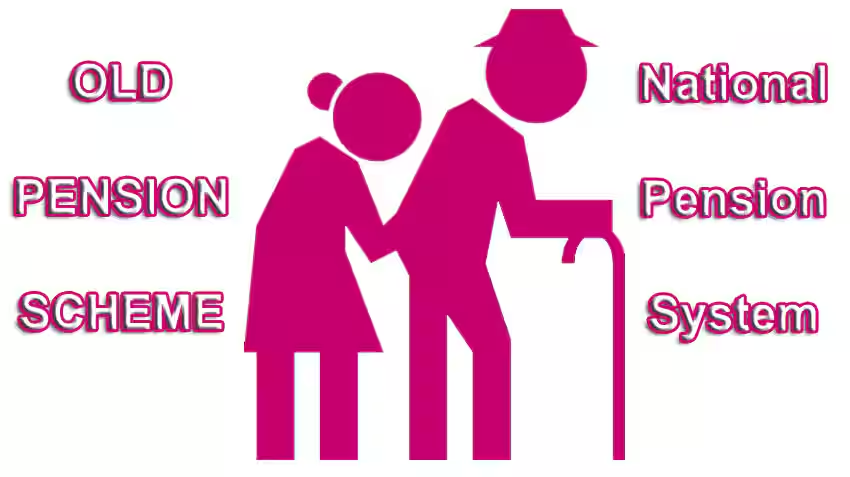
|
When considering the array of 51 optional subjects for the UPSC Mains Examination, Sociology consistently stands out as a top choice. Its inherent appeal lies in its accessibility and intriguing exploration of humanity and society, catering even to students from Science and Commerce backgrounds. With a well-defined UPSC sociology syllabus comprising only 13 units, Sociology can be comprehensively covered within 5 to 6 Month Comprehensive “Foundation to Finale” Classroom Programme, Many of Our Sociology Foundation Course Students have Cleared CSE 2023- Kajal Singh, First Attempt (Age 22) Mahi Sharma, First Mains (Age 23), Anand Sharma First Mains and Many Others. Previously also Many students like IAS Pradeep Singh, IAS Ashish, IPS Bindu Madhav, IPS Aparna Gautam, IPS Shahnaz Illyas got Success in CSE in First Attempt with Sociology Optional.
IAS Medha Anand, has get 310 marks in her optional subject sociology, 156 in paper – 1 & 154 marks in Paper -2 in CSE 2023. Notably, Sociology for UPSC has garnered a reputation as one of the Highest scoring optional subjects in the UPSC Main Examination, with numerous candidates consistently achieving 300+. Its popularity is evident in the fact that a significant proportion of top 100 rankers opt for Sociology as their optional subject, showcasing its high scoring potential, particularly for those not from sociology backgrounds. Moreover, relevance of Sociology Optional Syllabus for UPSC extends beyond the examination hall, enriching understanding across various aspects of life, from social and economic to political and cultural domains. In recent times, Sociology Optional has gained traction, aligning with the evolving trend of the UPSC Mains towards conceptual analysis. Unlike other optional subjects with unpredictable question patterns, Sociology offers stability and predictability, making it an attractive choice. This adaptability, coupled with its concise syllabus and relevance to both academic and social spheres, positions Sociology as the ideal optional subject for engineers as well as optional subject for commerce graduates and optional subject for science graduates seeking success in the Civil Services Examination. For those pursuing Sociology as an optional subject, accessing comprehensive Sociology optional notes and few good Sociology optional books, and previous years’ UPSC sociology optional question papers is pivotal for thorough preparation. Additionally, for aspirants seeking guidance, renowned educator Vikash Ranjan Sir at TRIUMPH IAS coaching institutes in Delhi, offer valuable support and resources. Vikash Ranjan Sir is the Best Sociology Teacher and Triumph IAS is the
best sociology coaching in Delhi. If you are away from Old Rajendra Nagar, Delhi, you can still complete Journey of UPSC civil service preparation through online Sociology class The scientific nature of Sociology, coupled with its direct applicability to daily social interactions, renders it a subject that can be comprehended without extensive reference materials, distinguishing it from other optional subjects requiring extensive reading and research.
|
Unified Pension Scheme
Relevant for Civil Services Examination
GS Paper-3 (prelims)

Unified Pension Scheme
The Union Cabinet has approved the Unified Pension Scheme (UPS), ensuring government employees a guaranteed pension post-retirement. This scheme will take effect from April 1, 2025, transitioning central government employees from the existing National Pension System (NPS) to UPS.
State governments will also have the option to implement the Unified Pension Scheme.
Provisions of the Unified Pension Scheme
Assured Pension: Employees will receive a pension amounting to 50% of their average basic pay over the last 12 months before retirement, provided they have a minimum qualifying service of 25 years. For shorter service periods, the amount will be proportionately reduced, with a minimum of 10 years required to qualify.
Assured Minimum Pension: Employees retiring after at least 10 years of service will receive a guaranteed minimum pension of Rs 10,000 per month.
Assured Family Pension: In the event of a retiree’s death, their immediate family will be entitled to 60% of the pension the retiree was receiving.
Inflation Indexation: The three types of pensions mentioned will include dearness relief, which will be adjusted based on the All India Consumer Price Index for Industrial Workers.
Lump Sum Payment at Retirement: In addition to gratuity, employees will receive a lump sum payment equivalent to 1/10th of their monthly emoluments (pay + DA) for every six months of completed service at retirement. This lump sum will not affect the assured pension amount.
Choice for Employees: Employees can choose to remain under the National Pension System (NPS) if they prefer. However, this decision is final and cannot be changed once made.
Differences between UPS, Old Pension Scheme (OPS) and National Pension Scheme (NPS)

Pension Calculation Method: Under the Old Pension Scheme (OPS), the pension was fixed at 50% of the last base salary plus dearness allowance (DA). In the Unified Pension Scheme (UPS), the pension is calculated as 50% of the average of the basic salary plus DA drawn in the last year before retirement. This adjustment could result in a slightly lower pension if an employee is promoted shortly before retirement.
Employee Contribution: OPS required no employee contribution. Under UPS, employees must contribute 10% of their basic pay plus DA, while the government will contribute 18.5%. Under the National Pension System (NPS), the contribution was 10% from the employee’s basic salary and 14% from the government.
Tax Benefits: Central government employees are eligible for tax benefits on the government’s contribution to the NPS scheme, allowing a 14% deduction under the Income Tax Act, 1961, in both old and new tax regimes. Since OPS did not require employee contributions, no tax benefits were available. The government has yet to clarify if contributions under the UPS scheme will be eligible for tax benefits.
Higher Minimum Pension in UPS: The UPS scheme offers a minimum pension of Rs 10,000 per month for retirement after at least 10 years of service. Currently, the minimum pension amount is Rs 9,000 for a similar service period.
Lump Sum Payments: OPS allowed for the commutation of up to 40% of the pension into a lump sum payment, which reduced the monthly pension amount. Under UPS, a lump sum payment is provided at retirement, calculated as one-tenth of the monthly salary plus DA for every six months of service, without affecting the pension amount.
NPS
- Pension Calculation Method: Under the Old Pension Scheme (OPS), the pension was fixed at 50% of the last base salary plus dearness allowance (DA). In the Unified Pension Scheme (UPS), the pension is calculated as 50% of the average of the basic salary plus DA drawn in the last year before retirement. This adjustment could result in a slightly lower pension if an employee is promoted shortly before retirement.
- Employee Contribution: OPS required no employee contribution. Under UPS, employees must contribute 10% of their basic pay plus DA, while the government will contribute 18.5%. Under the National Pension System (NPS), the contribution was 10% from the employee’s basic salary and 14% from the government.
- Tax Benefits: Central government employees are eligible for tax benefits on the government’s contribution to the NPS scheme, allowing a 14% deduction under the Income Tax Act, 1961, in both old and new tax regimes. Since OPS did not require employee contributions, no tax benefits were available. The government has yet to clarify if contributions under the UPS scheme will be eligible for tax benefits.
- Higher Minimum Pension in UPS: The UPS scheme offers a minimum pension of Rs 10,000 per month for retirement after at least 10 years of service. Currently, the minimum pension amount is Rs 9,000 for a similar service period.
- Lump Sum Payments: OPS allowed for the commutation of up to 40% of the pension into a lump sum payment, which reduced the monthly pension amount. Under UPS, a lump sum payment is provided at retirement, calculated as one-tenth of the monthly salary plus DA for every six months of service, without affecting the pension amount
The Unified Pension Scheme (UPS) seeks to balance fiscal costs with employee expectations. It aims to address the uncertainties of the National Pension System (NPS) and the high fiscal burden of reverting to the Old Pension Scheme (OPS). The UPS integrates aspects of both OPS (defined benefit) and NPS (contributory), offering a defined return on the pension pool while minimizing market risk. With assured returns and protection against inflation, the UPS is anticipated to enhance the overall pension fund and mitigate some of the risks associated with debt burden.
The End of the Blog: Unified Pension Scheme

|
|
Frequently Asked Questions by
UPSC Sociology Optional Students
How to prepare for the Sociology Optional without coaching?
Understand the syllabus thoroughly: Familiarize yourself with the entire syllabus for both Paper I and Paper II. Download the official UPSC syllabus and use it as your roadmap. You can attend Sociology Orientation Lectures by Vikash Ranjan sir on YouTube
Build a strong foundation: Start with introductory textbooks and NCERT books to grasp core sociological concepts. You can start with Introduction to Sociology books
Choose reliable study materials: Select high-quality textbooks, reference books, and online resources recommended by experts. You can opt for Vikash Ranjan Sir Notes too.
Develop a study schedule: Create a realistic and consistent study schedule that allocates dedicated time for each topic. Stick to it and track your progress.
Take notes effectively: Don’t just passively read. Summarize key points, create mind maps, or use other note-taking techniques to aid understanding and revision.
Practice answer writing: Regularly write answers to past year question papers and model questions. Focus on clarity, structure, and critical thinking. Evaluate your answers for improvement.
Seek guidance: You can take free Mentorship on Sociology Optional preparation by Vikash Ranjan sir. Connect with Vikash Ranjan sir (7303615329) to share strategies, ask questions, and stay motivated.
Can I prepare for Sociology Optional without coaching?
Absolutely! Many aspirants successfully clear the exam through self-study. However coaching can provide structure and guidance, for time bound preparation.
What are the benefits of preparing without coaching?
Cost-effective: Coaching can be expensive, and self-study allows you to manage your resources efficiently.
Flexibility: You can tailor your study plan to your individual needs and pace.
Independence: You develop critical thinking and research skills, valuable assets for your career.
What are the challenges of preparing without coaching?
Discipline and motivation: You need self-discipline to stay on track and motivated without external guidance. Coaching and Teacher keeps you motivated.
Access to resources: You may need to do extra research to find quality study materials and answer-writing practice opportunities. Teacher help you on this respect.
Doubt clearing: You might lack immediate access to someone to address your doubts and questions. Teacher like Vikash Ranjan sir is accessible to his students 24×7 Mo- 7303615329
What additional resources can help me?
Vikash Ranjan Sir’s YouTube channel and website: Offers free Sociology lectures, study materials, and guidance.
Triumph IAS website: Provides past year question papers, model answers, and other helpful resources.
Public libraries and online databases: Utilize these resources for access to relevant books, journals, and academic articles.
Follow us :
🔎 https://www.instagram.com/triumphias
🔎 www.triumphias.com
🔎https://www.youtube.com/c/TriumphIAS
🔎https://t.me/VikashRanjanSociology

















